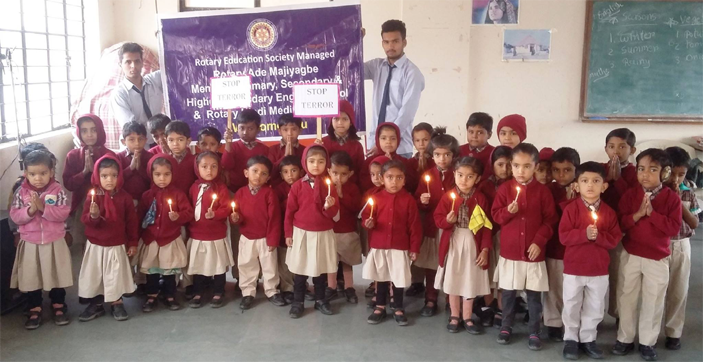Build schools in Nepal; this will keep the community intact and stop them from migrating to another region. That is one of the most impor- tant lessons we learnt after the Gujarat earthquake,” says PDG Bharat Dhola- kia who decided to step down as Dis- trict Governor after he lost his home and office in the Gujarat quake in January 2001. “I was psychologically not pre- pared to attend the International Assem- bly or continue as Governor,” he recalls. But PRIP Kalyan Banarjee and RID Manoj Desai’s visit to Bhuj changed everything and “what happened next was nothing short of a miracle for the people of Gujarat,” he adds.


“Kalyan Bhai and Manoj Bhai said ‘tujhe Assembly mein jaana hi padega (you will have to go to the Assembly).’ I realised they were looking at the bigger picture.” Dholakia attended the Interna- tional Assembly in February 2001 at Los Angeles. PRID Rajendra Saboo gave him an opportunity to address the gath- ering. “I had nothing to say, my intro- duction said it all. I was the Homeless Governor,” recalls the PDG.
Moved by his condition, “TRF for the first time waived their mandatory requirement to help Gujarat. Until that date Matching Grants were never pro- vided for construction,” he recalls. Dur- ing the Assembly, a sum of $ 1.2 billion was announced for relief work in Gujarat; TRF sanctioned the 3H (Health, Hunger and Humanity) Grants. Rotarians from Japan and other countries donated $ 1 billion for low-cost shelters. The Rotary Gujarat Rebuild Trust was formed and “Rotary in partnership with the Indian government constructed close to 1,000 classrooms in 182 villages,” says PDG Mohan Nemchand Shah who was incharge of the 3H Grants.

Usha Saboo, who led the spouses committee then, appealed to the spouses of Rotarians. Over $44,000 was collected and these funds helped in setting up a school — the Rotary Ade Majiyagbe Memorial English Medium Madhyamik School at Haripar in Kutch. The school was named after Ade Majiyagbe, spouse of the then RI President Jonathan Babatunde Maji- yagbe “who believed that literacy is the path to opportunity and always made sure to promote this cause,” says PDG Shah.
Rotary English School
This school has around 200 students and classes all the way to Class 12. The class- rooms are spacious, well maintained and the blackboard sports signs of interactive lessons, as children walk up to the board and mark the different parts of the flower the teacher had drawn. “We hire teach- ers who have completed their B Ed and who have a passion for teaching,” says the Principal Gopi Trivedi. Fee is nom- inal and scholarships are available. She proudly says “We have a record for cent percent results in Class 10.” The school never goes on a holiday as vocational Row houses constructed after the earthquake. training programmes for women are organised during the vacations.
Rotary Colony
RC Bhuj constructed 872 houses in Bhachau, Paddhar, Bhuj and Anjar — the worst affected regions. “The row houses look decent, comfortable and toilets are attached,” says Abha Behn, a resident of the Rotary Colony. Her 1BHK home has made her so comfort- able that she feels “Yeh pichley wale ghar se behtar hai (This house is better than the old one).” Oma begins to cry as she recalls the horror. “Thank you Rotary for the roof above my head,” she says gratefully.
Hill Garden

Built on 22 acres of land this garden was handed over to Rotary by the Govern- ment. RC Bhuj has spent about Rs 22
lakh to set up a dome that houses the skeleton of the 75-feet blue whale which was found dead in the Creek Sea. This attracts thousands of visitors weekly and “taking a selfie here has become a tradi- tion,” says Rtn Vinay Toprani. “During Navratri the garden hosts Garba nights and disco dandiya and is the best of its kind in Bhuj,” says a visitor.
When the news of the Nepal earth- quake came “each club came forward with whatever they could because we knew how 42 seconds and 7.9 mag- nitude on the Richter’s scale took our everything,” says Dholakia. But it gave Gujarat a “doosra janam (a rebirth) and yet again it gave Rotary a chance to serve. Rotary in Nepal should treat this as an opportunity and showcase Rotary’s care for humanity. We are with them.”





